December 27, 2024 | 10:35
Science
Research
Application of new methods as a prerequisite for enhancing the resilience of crops
Soil salinization and drought in the Republic of Armenia negatively impact the growth of crops, particularly wheat, barley, and olive trees. Traditional agricultural methods have proven ineffective in addressing these environmental challenges. In this context, the study conducted by Karen Ghazaryan, Dean of YSU Faculty of Biology, explores alternative approaches to enhancing the resilience of crops.
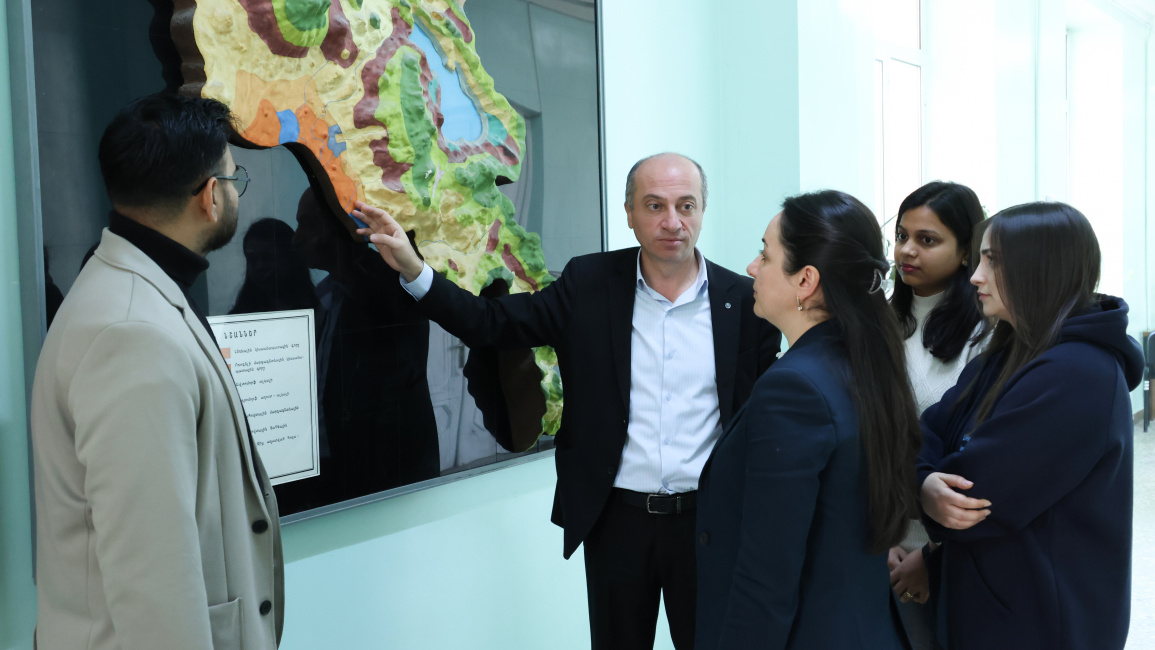
The scientific project titled "Development of 'GreenTech' for Wheat, Barley, and Olive Trees: Their Resilience to Salinity and Drought under the Combined Application of Biogenic Nanoparticles and Biochar", authored by Karen Ghazaryan, has received funding under the "Prospective Research Projects-2024" competition, announced by the Higher Education and Science Committee of MoESCS.
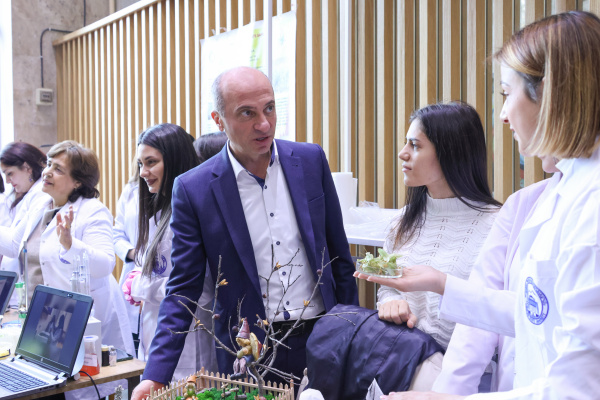
The main goal of the project is to enhance the resilience of wheat, barley, and olive trees to salinity and drought, while also improving agricultural waste management.
Karen Ghazaryan presented his approach to improving crop growth and the need for green technology.
Use of Biogenic Nanoparticles and Biochar as Alternative Methods for Enhancing Crop Resilience
In the Ararat Plain, wheat and barley cultivation faces numerous challenges, including salinity and drought. Traditional agricultural practices are ineffective against these environmental stressors. However, the application of biogenic nanoparticles and biochar, which will be synthesized through eco-friendly methods, offers a potential solution to enhance the resilience of these crops.
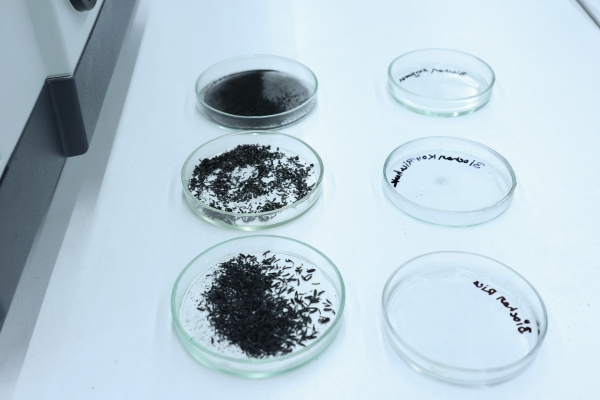
In Meghri Town, olive trees grow in arid, dry, subtropical climate conditions. The use of biogenic nanoparticles and biochar is an innovative approach to address this issue. The research aims to identify the adaptive mechanisms of olive trees to drought stress and examine the potential of biogenic nanoparticles and biochar to mitigate the effects of water scarcity on olive cultivation.
The goal of this research is to improve agricultural practices in the Ararat Plain and Meghri Town by integrating green technologies. For the first time in Armenia, the application of biogenic nanoparticles and biochar as a "GreenTech" approach will be introduced.
Agricultural Waste Recycling
The significance of this research lies not only in discovering the positive effects of biochar and biogenic nanoparticles but also in efficiently using greenhouse waste and other agricultural by-products for their synthesis. We will try to obtain two products from agricultural waste that will improve crop production. This integrated approach will contribute to soil health, ion balance, and osmotic regulation.
Research to Promote the Development of Education in Green Agriculture
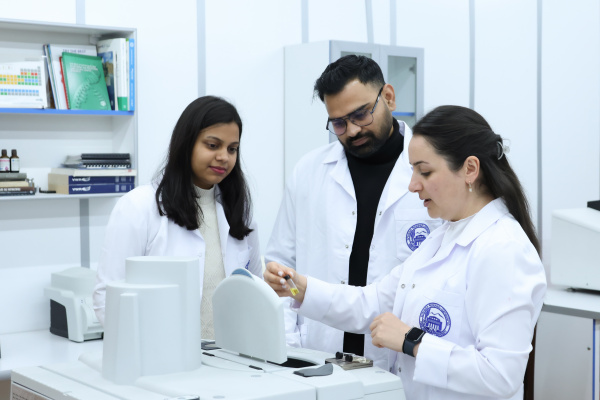
By encouraging sustainable agriculture, this study aims to ensure the long-term sustainable use of land for the cultivation of wheat, barley, and olives in different landscape zones of Armenia. In addition to providing scientific foundations for the issue, the project will involve local communities, stimulate education on green agriculture, and influence policy proposals for expanding sustainable agricultural practices.
Ultimately, the research will contribute to the development of NanoGreen agriculture, promoting crop resilience and ensuring food security in the face of growing environmental challenges.
Soil Improvement, Crop Resilience, and Sustainable Waste Management as Expected Outcomes
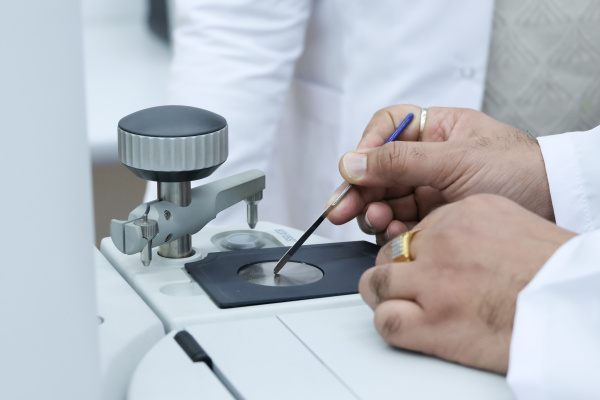
The anticipated outcomes of the scientific project include a reduction in soil salinity, increased drought resilience, and the identification of crop genotypes that exhibit high resistance to salinity and drought. Biogenic nanoparticles and biochar will be applied to crops to mitigate the effects of salinity and drought. A sustainable waste management system will also be developed, which includes the targeted use of greenhouse waste and agricultural by-products for the production of biogenic nanoparticles and biochar. A guide for farmers will be created, offering practical recommendations on selecting resilient crop varieties, sustainable practices, and waste management strategies. Policy proposals will also be prepared for decision-makers in the field, aiming to promote and develop ecologically clean agricultural practices, including greenhouse waste management. The project will support the expansion of sustainable agricultural practices and the reduction and proper management of agricultural waste.
The research team also includes researchers from the Research Institute of Biology, such as Abhishek Singh and Syuzanna Yesoyan, Biology Faculty lecturer Gohar Margaryan, and researcher Sakshi Singh from Yale University, USA.
At least 10 scientific articles detailing the project's outcomes are expected to be published in journals indexed in leading international scientific databases.

